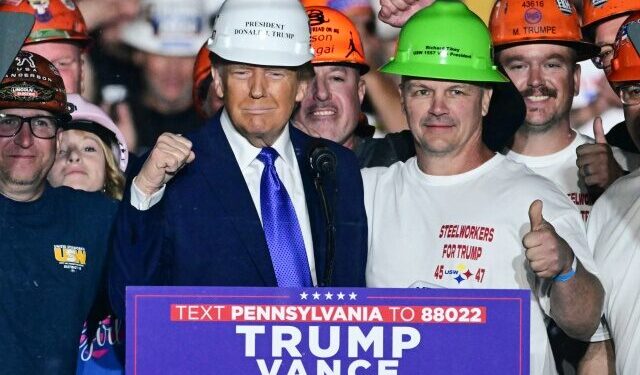Several prominent construction industry leaders in Texas are raising concerns over the potential impact of President-Elect Donald Trump and Vice President-Elect JD Vance’s plans to carry out a large-scale deportation program. They argue that such actions could deeply affect their ability to hire workers, which in turn would disrupt the construction industry, particularly in states like Texas, where the sector relies heavily on foreign-born labor.
In interviews with NPR, two key figures in the industry, construction mogul Stan Marek and economist Ray Perryman, voiced their worries that the proposed mass deportations could have devastating consequences. Marek and Perryman suggest that without the labor force provided by undocumented workers, many crucial infrastructure projects—such as highways, schools, and commercial buildings—could face significant delays or even remain unfinished.
Perryman pointed out that more than half a million foreign-born workers are employed in Texas’ construction industry, and estimates show that a large portion of them—about 60%—are undocumented. In fact, in some areas, undocumented workers make up a vital portion of the construction workforce, particularly in the lower-wage sectors of the industry. He expressed concern that deporting these workers could create a labor shortage that would be hard to fill with legal workers, leading to project slowdowns.
While some industry leaders suggest that the government should consider granting amnesty to the millions of undocumented workers currently in the U.S., both Trump and Vance have made it clear that their administration will focus on enforcement and oppose any form of amnesty. This stance has raised concerns about how the construction sector will adapt if large numbers of undocumented workers are forced to leave the country.
Over the past few years, the Trump administration’s tough stance on immigration and its enforcement of federal immigration laws has significantly tightened the labor market in industries like construction. While this has led to challenges for employers who rely on foreign labor, it has also had a positive impact on wages. As the labor pool shrinks, construction companies have been forced to offer higher wages and improve working conditions, which in turn has led to more opportunities for women and local workers who were previously underrepresented in the industry.
However, industry leaders like Marek and Perryman argue that simply removing undocumented workers without a comprehensive plan to address the labor shortage could have negative long-term effects on the U.S. economy. They suggest that more attention should be given to creating pathways for workers to stay legally, rather than focusing solely on deportation.





















Your article helped me a lot, is there any more related content? Thanks! https://accounts.binance.info/register?ref=P9L9FQKY